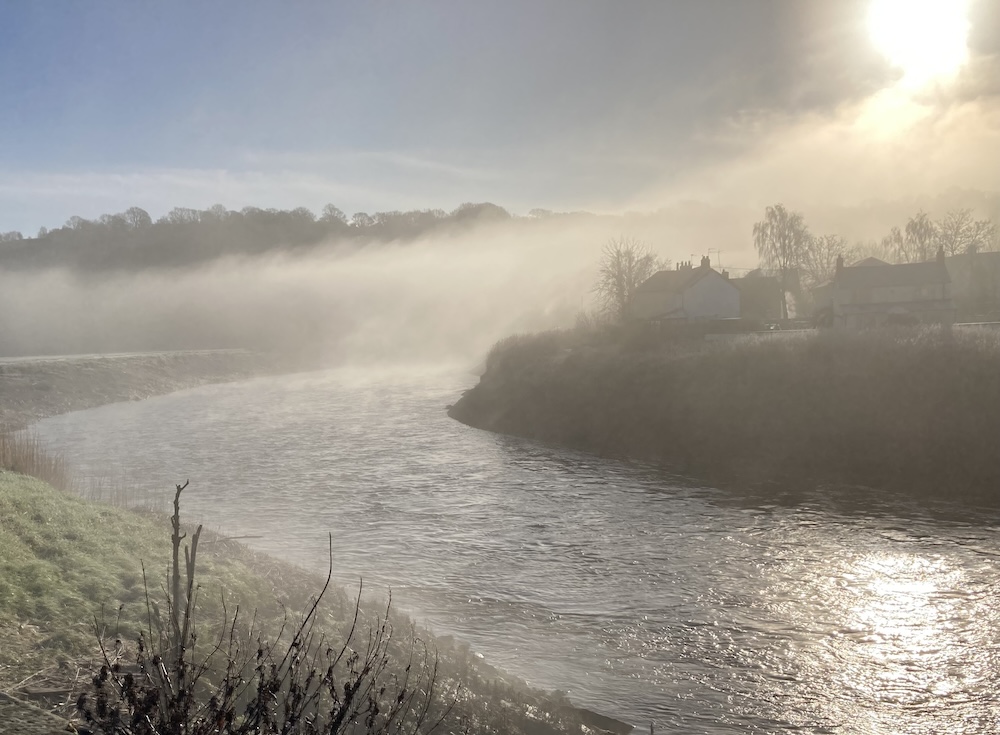Paul Chambers introduces a sequence of haiku that follow the River Usk from upland bog to tidal estuary, and through the cycle of the seasons.
These haiku are drawn from a longer work-in-progress exploring the River Usk, and the environments through which it flows, across a full seasonal cycle. Haiku’s precision and attentiveness to momentary detail are qualities well-suited to capturing the quiet shifts and encounters that shape a river’s life. The Usk flows through a range of landscapes, from upland bog to tidal estuary, and these poems aim to reflect something of that changing presence through close observation of place, an appreciation of seasonal transitions, and a deeper awareness of our interconnectedness with the more-than-human world.

early sun
the fog whitens
to an egret
bog thaw
the slow lift
of frogspawn
thin drizzle
mating crows hold
the calf’s gaze
heather slope
a skylark vanishes
into its note
minnow’s dart
the whole
river valley
gorse hum
an otter’s whiskers
catching light
slowed current
a heron steps through
its shadow
midges
in the cowshed doorway
deepening drought
low water
a carp mouths the silt
on a dressing gown
reedbed hush
the egret’s throat
pulses
hot evening
a dead mullet
deep in the drain shaft
baled field
a buzzard arcs
against the cloud shelf
coolness
at the edge of the woods
purple loosestrife
cottonwood seeds
carry the last light
over the river
marsh foxtail
grown through the hull
of a broken rowboat
warmth fading
from the sheepfold’s edge
slow thunder
gathering flies
a torn feed sack
in the ditch
river drizzle
pooling in a dent
in the oil drum
moor wind
the adder’s curve
tightens
cold sunset
a boy hurls back
an eel
dawn fog
gull by gull
the estuary
*
Paul Chambers is an award-winning and internationally anthologised haiku poet. His work on haiku has appeared in publications such as the Times Literary Supplement, The Conversation, and the Washington Post. He has been awarded for his poetry by the Museum of Haiku Literature in Tokyo, and his most recent collection, ‘The Dry Bones’ won the Haiku Foundation’s Touchstone Distinguished Book Award – the most prestigious prize in the field of English-language haiku. His work can be found here.